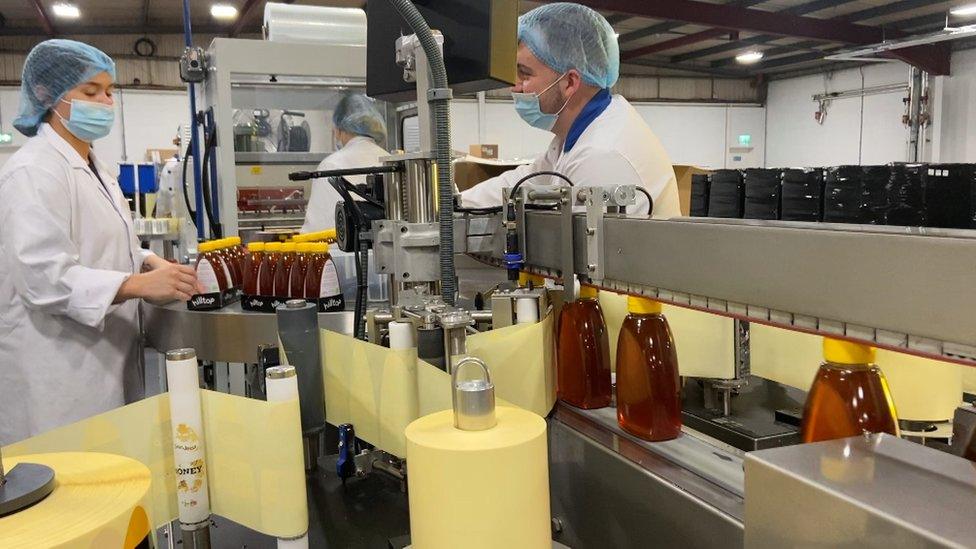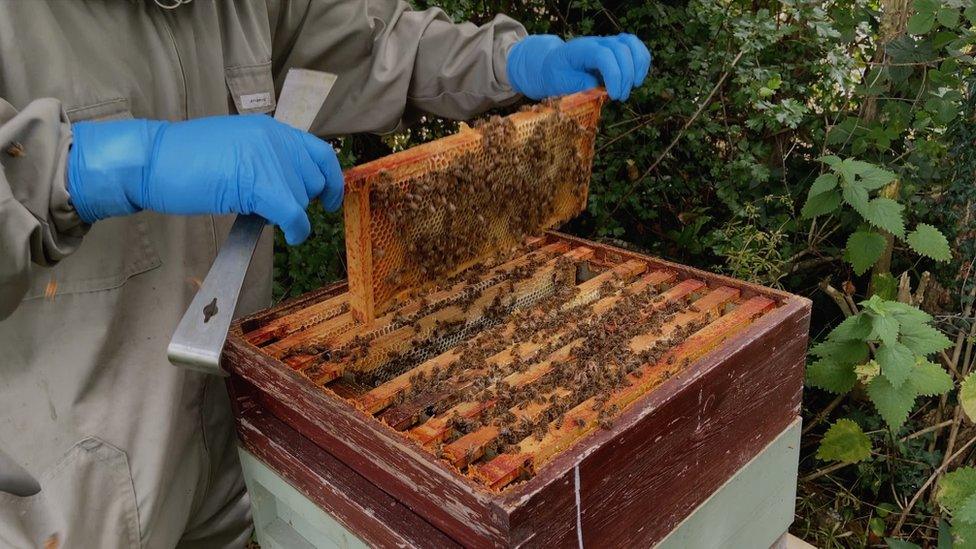CEO Secrets: 'I was making money, but had no money'
- Published
Scott says sorting out cash flow issues should be a priority for new businesses
"I was making money, but I didn't have any money," says Scott Davies, the founder of Hilltop Honey. "And I really didn't know where that money was living. It was only after I solved that problem that the business could expand."
Scott started Hilltop in 2011 on land near Newtown in Mid Wales. He has now built up a business with an annual turnover of £16m, selling honey through shops and supermarkets across the UK.
Some of it comes from Hilltop's own beehives; the rest he buys in. The business is doubling in size every year and has recently been ranked by the Sunday Times' Fast Track Index as the 26th fastest-growing company in the UK.
Yet in its early years, Hilltop was held back by constant cash flow problems.
"At about three years in, I was really struggling," says Scott. "I was thinking: how am I making this money and not having any money?
"I had worked in a coal merchants before starting my company. I had no real mentor, no understanding of business whatsoever. I only knew the concept that I needed to sell things for more than I could make them for."

As a new business, Scott's suppliers were unwilling to wait for a month before he paid them
"But while I was making lots in a profit and loss sense, I noticed I was always seemed to be screaming for short-term cash."
Scott took a closer look at how cash moved in and out of his business. The problem was that he was having to pay suppliers far earlier than he was taking in money from his customers.
"Being a new business, suppliers wouldn't give me good terms," he says. "I had no history at all, so everything was cash up front. I then went to customers and they were saying: 'we'll buy it but we're not going to pay you for 60 days.'
"So someone orders 5,000 jars of honey and you have to buy in supplies, but the money is sitting with the buyer for 60 days. Then someone else places a big order and you have to buy in supplies for that, as well, while you are still waiting for the money.
"I noticed that this lag of getting that money from that first order had become very, very difficult."

Hilltop sells its honey across the UK, and now has an annual turnover of £16m
Scott started renegotiating his payment terms, asking suppliers for more time to pay.
"It's not about smashing suppliers down," he says. "It is about building up trust with them. It's that first step of trust. It's like: 'I'll pay you back in a week'. That's an extra week when money is staying in your hands. They understood that.
"And then the more you worked with them, all of a sudden they were like: 'Scott's going to pay me because he's paid me for the last two years.' After that, you can lengthen your payment terms out to 30 or 60 days to get a much healthier cash flow."
Scott works a lot, advising young entrepreneurs. He agrees that they have little choice at the start of their businesses except to accept short payment terms from suppliers and long ones from customers. Yet changing those terms of trade should be their main priority as the business grows, he says.
"It's a question of looking after the business, rather than just raising more and more debt or selling shares in the company to investors. I was tempted to do both of those things in the early years but I looked at my cash flow and my terms of trade instead, and here I am with a fairly profitable business, which I own a 100% of - and no debt."